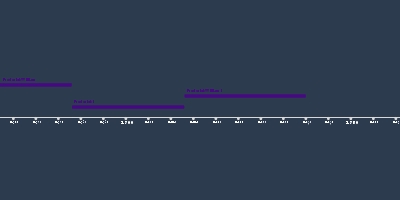Pre-World War 1 Diplomacy (jan 1, 1872 – jul 28, 1914)
Description:
Growing competition over global colonies and world markets, an aggressive arms race, and a series of diplomatic crises caused tensions that eventually culminated in the first world war.After the Franco-Prussian War, Bismarck had declared his powerful Germany at peace and satisfied. It tried to keep France isolated without allies, and was concerned with the threat of Austria-Hungary and Russia. Bismarck maintained German leadership in international affairs and signed several defensive alliances to Austria-Hungary and Russia to isolate France. Wilhelm II dismissed Bismarck, and his system began to unravel. Germany refused to sign a nonaggression pact with Russia. France and Russia became military allies. Europe was thus divided into two rival factions: the Triple Alliance of Austria, Germany and Italy, and the Dual Alliance of Russia and France. The latter became increasingly hostile, and rivalries deepened.
Britain was the only uncommitted Great Power and some felt they should be allied with Germany due to their ethnic relation and industrial advancement. However, rivalry between the two grew due to commercial competition, colonial competition, and Germany expanding its battle fleet, which Britain responded to with alliances and agreements with the U.S., Japan, and France. Alarmed by Britain's ties with France, Germany supported Moroccan independence. France had colonial interests in Morocco, and an international crisis almost led to war. Wilhelm II hoped an international conference would lead to Germany’s benefit in the situation with Morocco, but it only brought Britain and France closer together.
After the First Moroccan Crisis in 1905, Britain, France, Russia, and the U.S. began to see Germany as a potential threat. Meanwhile, German leaders saw plots to encircle Germany and block its development. Russia signed the Anglo-Russian Agreement with Britain, which laid the foundation of the Triple Entente, an alliance between Britain, Russia, and France. In the Second Moroccan Crisis, French troops were sent into the country to put down anticolonial rebellion, and Germany sent a gunboat in response. International discussion led to France claiming Morocco as a permanent protectorate and giving Germany some territorial concessions in the Congo, but viewing them as an even bigger threat. Germany’s development of dreadnoughts, large, powerful, big-gun battleships, increased tensions.
The general mood around 1914 was important. Leaders and citizens saw international relations as an arena for testing national power. Politicians relied on generals and military experts to help shape public policy. Universal conscription in every major power but Britain exposed young men to military culture and discipline. Europeans believed that a war would be glorious, manly, heroic, and over quickly. Politicians and intellectuals portrayed war as a test of strength that would lead to national unity and renewal. More and more people adopted the idea that their country was superior to others, which provoked international conflicts over borders and citizenship rights since the 1850s. As before, nations often got involved in international affairs to distract the public from problems at home. Leaders were willing to risk diplomatic brinkmanship and even war to preserve the positions of privileged elites and to rally the public behind national causes, but underestimated how costly it could be.
On June 28, 1914, member of the radical group the Black Hand Gavrilo Princip killed Archduke Franz Ferdinand, heir to the Austro-Hungarian throne, and his wife Sophie in Sarajevo. He aimed for the unification of Yugoslavs free from Austria. The event led Europe into world war. In the early 20th century, war in the Balkans seemed inevitable, and the Ottomans had been forced to give up their European territories. Slavic groups wanted independence, and the threat of war loomed. Serbians were especially eager, and to block expansion, Austria-Hungary annexed Bosnia and Herzegovina.
In the First Balkan War, Serbia along with Greece and Bulgaria attacked the Ottoman Empire then quarreled with Bulgaria over the spoils of victory. In the Second Balkan War, Bulgaria attacked the former allies. Austria intervened and forced Serbia to give up Albania. The Ottoman Empire in Europe had been destroyed. Balkan nationalists increased their demands for freedom from Austria-Hungary, which was view as a serious threat.
Ferdinand’s assassination created the July Crisis, a five-week period of intense diplomatic activity. Austria-Hungary concluded that Serbia was implicated and deserved punishment. It gave Serbia an unconditional ultimatum that would violate Serbian sovereignty, and when Serbia replied moderately but evasively, Austria declared war. Austria-Hungary had chosen war to stem the rise of hostile nationlism.
German chancellor Bethmann-Hollweg promised support for Austria-Hungary, which encouraged the prowar faction in Vienna to take a hard line against the Serbs at a time when moderation might still have limited the crisis. Serbia’s traditional ally Russia encouraged them to refuse Austrian demands. The diplomatic situation spiraled out of control as military plans and timetables began to dictate policy. Russia needed more time to mobilize its armies than Germany and Austria-Hungary and also could not face one without facing another. Nicholas II ordered full mobilization, practically declaring war. The German general staff’s Schlieffen Plan called for a quick victory over France after a lightning attack through neutral Belgium, which was the quickest way to reach Paris, before turning on Russia. Britain was outraged by their violation of Belgian neutrality and declared war on them. The speed of the July Crisis created a slew of reactions, and much of the public was pro -war. World War I had begun.
Added to timeline:
Date:
jan 1, 1872
jul 28, 1914
~ 42 years
